Life Sciences News
See our Latest Journal Publications
Antibiotics and farming
 Professor Elizabeth Wellington talks to Adam Rutherford on BBC Radio 4 about how the agricultural use of antibiotics is contributing to the global spread of resistance to them on this week's Inside Science: http://www.bbc.co.uk/programmes/b0977v58
Professor Elizabeth Wellington talks to Adam Rutherford on BBC Radio 4 about how the agricultural use of antibiotics is contributing to the global spread of resistance to them on this week's Inside Science: http://www.bbc.co.uk/programmes/b0977v58
VirionHealth Raises Series A Funding from Abingworth
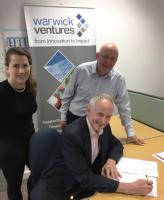 VirionHealth Ltd, a new biotechnology company developing novel therapeutics for respiratory viral infections, today announced that it has raised up to £13 million in Series A funding from Abingworth, the international investment group dedicated to life sciences.
VirionHealth Ltd, a new biotechnology company developing novel therapeutics for respiratory viral infections, today announced that it has raised up to £13 million in Series A funding from Abingworth, the international investment group dedicated to life sciences.
VirionHealth, founded on pioneering research by Professors Nigel Dimmock and Andrew Easton at the University of Warwick’s School of Life Sciences, is a world leader in the development of precisely engineered, non-infectious, defective interfering particles. This new class of biological antiviral acts by outcompeting replication of infectious viruses to both prevent and treat viral infections.
(Image: Laura Lane from Warwick Ventures, Professor Andrew Easton and Professor Nigel Dimmock on day of signing)
Reaching out at New Scientist Live
The School of Life Sciences, Engineering and Physics are teaming up this week to deliver exciting outreach activities at New Scientist Live.
Taking place from Thursday 28 September – Sunday 1 October at the ExCeL London, New Scientist Live sets out to be ‘the world’s most exciting festival of ideas’, attracting over 22,000 science curious visitors to the event. When an exhibitor space became available, the School of Life Sciences Outreach Team, led by Professor Kevin Moffat, were quick to seize this opportunity to showcase cutting edge research and study at Warwick.
Our activities at the stand cluster broadly around the theme of Antimicrobial Resistance, spanning timescales from medieval plagues to contemporary Tuberculosis and futuristic treatments using viruses to cure infection. Our exciting line up includes a virtual reality protein explorer, plague-infested Jelly Babies propelled from trebuchets, an ‘Electronic Nose’ that can sniff out your breath, a pestilent poetry competition…
You can find out more about Warwick activities at New Scientist Live at www.warwick.ac.uk/newscientistlive
Follow us on Twitter @SlsOutreachWrwk
Brain cells that control appetite identified for first time
 Dieting could be revolutionised, thanks to the ground-breaking discovery of the key brain cells which control our appetite. Professor Nicholas Dale in the School of Life Sciences has identified for the first time that tanycytes – cells found in part of the brain that controls energy levels – detect nutrients in food and tell the brain directly about the food we have eaten.
Dieting could be revolutionised, thanks to the ground-breaking discovery of the key brain cells which control our appetite. Professor Nicholas Dale in the School of Life Sciences has identified for the first time that tanycytes – cells found in part of the brain that controls energy levels – detect nutrients in food and tell the brain directly about the food we have eaten.
Read Press Release
Antimicrobial resistance tackled with new £2.85m PhD Training Programme
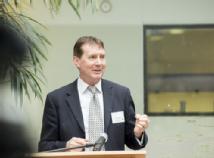 New scientists will be trained to explore ways to tackle antimicrobial resistance - one of the greatest emerging threats to human health – with the creation of a £2.85m national PhD Training Programme, funded by the Medical Research Council and part-led by the University of Warwick.
New scientists will be trained to explore ways to tackle antimicrobial resistance - one of the greatest emerging threats to human health – with the creation of a £2.85m national PhD Training Programme, funded by the Medical Research Council and part-led by the University of Warwick.
Professor Chris Dowson from Warwick’s School of Life Sciences is part of the Programme Leadership Team, and has been integrally involved with the establishment of the training programme.
Read Press Release
Cells programmed like computers to fight disease
 Cells can be programmed like a computer to fight cancer, influenza, and other serious conditions – thanks to a breakthrough in synthetic biology by the University of Warwick.
Cells can be programmed like a computer to fight cancer, influenza, and other serious conditions – thanks to a breakthrough in synthetic biology by the University of Warwick.
Led by Professor Alfonso Jaramillo in the School of Life Sciences, new research has discovered that a common molecule - ribonucleic acid (RNA), which is produced abundantly by humans, plants and animals - can be genetically engineered to allow scientists to program the actions of a cell.
Read Press Release
Asian hornet “adds to growing number of threats to honeybees” – Warwick research on BBC
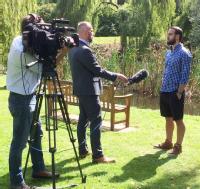 Research to help prevent the spread of Asian hornet across the UK - carried out by the University of Warwick - was recently featured on BBC Midlands Today and BBC Online.
Research to help prevent the spread of Asian hornet across the UK - carried out by the University of Warwick - was recently featured on BBC Midlands Today and BBC Online.
Led by the Warwick’s Zeeman Institute for Systems Biology & Infectious Disease Epidemiology Research (SBIDER), the recent study predicts that Asian hornet – a voracious predator of honey bees and other beneficial insects – could colonise the UK within two decades.
The BBC’s David Gregory-Kumar interviewed Dr Daniel Franklin at the School of Life Sciences.
Warwick’s iGEM students take on E.coli
 Warwick’s 2017 iGEM team, Blueprint 361, is determined to make E.coli work in their favour. The team is made up of 5 engineering undergraduates, 4 students from the School of Life Sciences and a chemist, and are supervised by Dr Alfonso Jaramillo.
Warwick’s 2017 iGEM team, Blueprint 361, is determined to make E.coli work in their favour. The team is made up of 5 engineering undergraduates, 4 students from the School of Life Sciences and a chemist, and are supervised by Dr Alfonso Jaramillo.
Their project is going to use E.coli to produce a biopolymer, which will then in turn be used as the bio-ink for their 3D printer. Over the course of the summer months, the team have been relentlessly working away in many labs around the campus to use this system for the creation of surface coatings with improved biocompatibility and osseointegration. If successful, the team could see revolutionary increase in both the strength and versatility of artificial joints and dental implants.
Excitingly, further development could even see this technology lead to the 3D printing of biological structures, such as trachea frameworks or even organ scaffolds.
The Blueprint 361 team will be taking their project to Boston in November 2017 to compete in the iGEM Jamboree against over 300 other teams from around the world. The team are urgently seeking additional funds in order to allow them to further develop their project. Can you help them? If so, please email
igem@warwick.ac.uk.
iGEM is an international synthetic biology competition, which was established by MIT in 2003. Each iGEM team works over the summer to produce a new genetically engineered biological system, and competes in the following categories: the environment, manufacturing, diagnostics, therapeutics and food.
Keep up to date with the team here:
Facebook @warwickIGEM
Twitter @warwickigem
Instagram @igemwarwick
Asian hornet to colonise UK within two decades without action
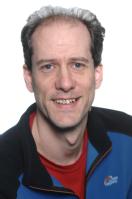 The yellow legged or Asian hornet – a voracious predator of honey bees and other beneficial insects – could rapidly colonise the UK unless its spread is combatted, according to new research by the Universities of Warwick and Newcastle, working with the National Bee Unit.
The yellow legged or Asian hornet – a voracious predator of honey bees and other beneficial insects – could rapidly colonise the UK unless its spread is combatted, according to new research by the Universities of Warwick and Newcastle, working with the National Bee Unit.
Professor Matt Keeling, from Warwick’s Zeeman Institute for Systems Biology & Infectious Disease Epidemiology Research (SBIDER), predicts that if Asian hornet nests are left to thrive in the UK, there could be hundreds of thousands of them in just over two decades – putting a critical strain on British populations of honey bees and other beneficial insects.
GP-based testing for HIV is cost-effective and should be rolled out in 74 local authorities
 Offering HIV testing to people at health checks when they register at a new GP surgery in high-prevalence areas is cost-effective and will save lives.
Offering HIV testing to people at health checks when they register at a new GP surgery in high-prevalence areas is cost-effective and will save lives.
That’s according to a study, published in The Lancet HIV, involving over 86,000 people from 40 GP surgeries.
Using a mathematical model which was co-developed by Professor Deirdre Hollingsworth at the University of Warwick that includes all the costs associated with HIV testing and treatment, the team show that primary care HIV screening in high prevalence settings becomes cost-effective in 33 years (according to National Institute for Health and Care Excellence [NICE] criteria).
International Biology Olympiad hosted by Life Sciences
The International Biology Olympiad (IBO), which takes place every year in different locations across the globe, sees pre-university students compete in a series of practical experiments and theoretical exams in what is the biggest biology competition in the world.
The competition, which spans a week in duration, takes place from 23 - 30 July, and - after a successful bid back in 2012 - will be taking place this year in the United Kingdom at the University of Warwick's School of Life Sciences.
Multi-million-pound investment in a regional cryo-electron microscopy facility
A state-of-the-art Midlands regional cryo-electron microscopy (Cryo-EM) facility has been established, following a successful bid by the Universities of Warwick, Nottingham and Birmingham, led by the University of Leicester.
The total investment exceeds £6M, with £3.7M from the Medical Research Council. The four partner Universities will provide the remaining funds, with the University of Warwick contributing £460,000.
The co-applicants of the project from Warwick were Dr Corinne Smith from the School of Life Sciences, with Professors Mohan Balasubramanian and Rob Cross from Warwick Medical School.
As part of the investment, a new 200KV cryo transmission electron microscope will be placed in the Advanced Bioimaging Research Technology Platform, located within Warwick’s School of Life Sciences.
Bacteria collaborate to propel the ocean ‘engine’
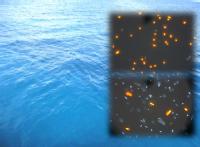 Essential microbiological interactions that keep our oceans stable have been fully revealed for the first time, by researchers at the University of Warwick.
Essential microbiological interactions that keep our oceans stable have been fully revealed for the first time, by researchers at the University of Warwick.
Dr Joseph Christie-Oleza and Professor David Scanlan from the School of Life Sciences have discovered that two of the most abundant types of microorganism in the oceans – phototrophic and heterotrophic bacteria – collaborate to cycle nutrients, consequently, drawing carbon from the atmosphere and feeding the ecosystem.
Read Press Release
Professor Laura Green awarded OBE
 Congratulations to Professor Laura Green, Head of the School of Life Sciences at Warwick, who has been awarded an OBE in the Queen's Birthday Honours List 2017.
Congratulations to Professor Laura Green, Head of the School of Life Sciences at Warwick, who has been awarded an OBE in the Queen's Birthday Honours List 2017.
The award is in recognition of services to the health and welfare of farmed livestock.
Read Press Release
Warwick Graduates in top ten for highest earnings in Life Sciences
The Government’s latest Longitudinal Education Outcomes (LEO) dataset published this week, on Tuesday 13 June 2017, shows that in over a dozen subjects, including Life Sciences, University of Warwick graduates are ranked in top 10 in the UK for high earnings five years after their graduation.
Read Press Release
How far from a sneeze can you catch a disease?
 On Monday 12 June, Virologist Professor Andrew Easton spoke about sneezing on the new Channel 4 documentary 'How To Stay Well'.
On Monday 12 June, Virologist Professor Andrew Easton spoke about sneezing on the new Channel 4 documentary 'How To Stay Well'.
Watch the programme at http://www.channel4.com/programmes/how-to-stay-well
Demonstrating Food Security Research at the Kenilworth Show - Saturday 10 June
 A team of academics and students, supported by the Elizabeth Creak Charitable Trust and British Society of Plant Pathology, are taking part in the Kenilworth Show on Saturday 10 June with a stand demonstrating aspects of their research related to food security, plant pathogens and soil health.
A team of academics and students, supported by the Elizabeth Creak Charitable Trust and British Society of Plant Pathology, are taking part in the Kenilworth Show on Saturday 10 June with a stand demonstrating aspects of their research related to food security, plant pathogens and soil health.
Supporting Women's Careers in Science
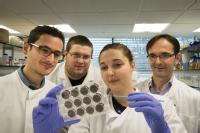 On Tuesday 4 July 2017 (10:00 - 18:30), the School of Life Sciences is proud to host a national Athena SWAN event on the topic of 'Supporting Women's Careers in Science'. This event will take place in the Medical Teaching Centre at the Gibbet Hill Campus of the University of Warwick. The event is free and all are welcome to attend. Registration is now open.
On Tuesday 4 July 2017 (10:00 - 18:30), the School of Life Sciences is proud to host a national Athena SWAN event on the topic of 'Supporting Women's Careers in Science'. This event will take place in the Medical Teaching Centre at the Gibbet Hill Campus of the University of Warwick. The event is free and all are welcome to attend. Registration is now open.
University of Warwick study to help understanding of childhood epilepsy
 A University of Warwick study to understand a form of epilepsy that affects children has received a grant from the charity Epilepsy Research UK. The research focuses on absence epilepsy which is largely a childhood condition which is characterised by sudden, brief interruptions of consciousness.
A University of Warwick study to understand a form of epilepsy that affects children has received a grant from the charity Epilepsy Research UK. The research focuses on absence epilepsy which is largely a childhood condition which is characterised by sudden, brief interruptions of consciousness.
In severe cases there may be more than 200 of these episodes each day, and these can be accompanied by or develop into convulsive seizures. Many children with absence seizures don’t respond to existing antiepileptic medication, which can present numerous difficulties in daily life, particularly with schooling.
Dr Mark Wall, Associate Professor in the School of Life Sciences, is leading the research. He said: “Our work will hopefully identify a new therapeutic target to treat absence epilepsy and increase understanding of the disease. The findings from this project will give important new information about how absence seizures arise, and may reveal new targets for the development of more promising treatments. The methods used will also be useful for the screening process of anti-absence seizure drugs in the future.”
Read Press Release

